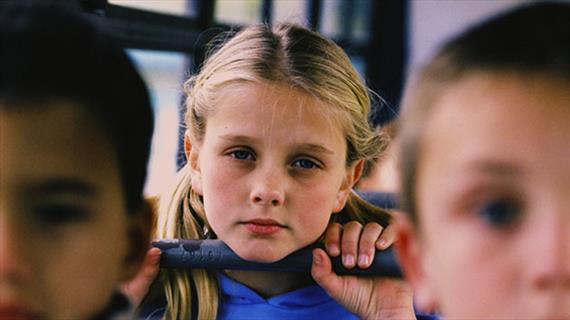Fourth-grade teacher Erin writes:
“I have a student with autism this year and he is doing great academically, which is awesome. But he struggles socially, and I’m sure that teasing is happening when I’m not around. I’ve talked about differences with my students and tried to help this little boy brainstorm ways to approach his classmates, but it’s not enough. Any ideas?”
Erin, we applaud you for your compassion and concern. The latest numbers show that as many as one in 50 U.S. children are now on the autism spectrum, which means that many of us are facing similar issues in our classrooms. Here’s how some of our teacher helpliners have worked to develop the social skills of their students with autism as well as the understanding of their peers:
- Invite the student to talk with the class about his diagnosis. I had a sixth grader with Asperger’s and she did a presentation for the whole class—her mom came in to help but only spoke up when she needed to fill in some details. It worked great: encouraged the student and her classmates. —Mishka K.
- Hard-boil an egg for each student. Allow children to decorate their eggs with stickers. Come together in a circle, and have students hold their eggs in the air so everyone can see the differences. Then, give each student a disposable bowl. Crack the shells, and point out that on the inside, the eggs are all the same—just as all humans share the same internal qualities. —Cindy D.
- Try partnering the student with a lunch buddy, a child in your class who you know will be kind and compassionate and who shares similar interests with the student with autism. —Aliyah M.
- Check with your school social worker or counselor and see if he or she can do social skills lessons with him. Also ask your school’s speech/language pathologist about working on social language skills. —Andrea V.
- Share this brochure with your other students on “How to Be a Friend to Someone With Autism.” —Sheri G.
- Check out Social Stories, which is a program specially designed to teach social learning to ASD students. —Iliana C.
Do you have any more advice for Erin? Please share it in the comments.
